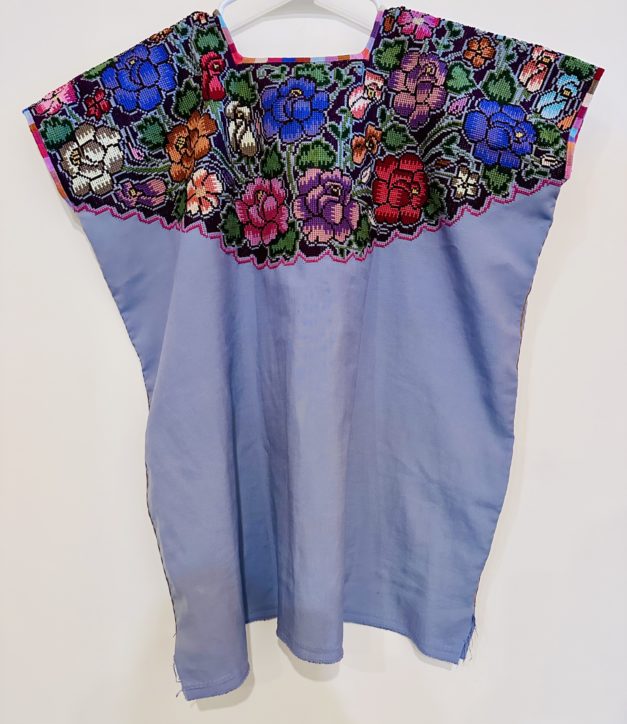This morning I awaken to the smell of the wood fire. The smoke drifts through the air like a voice into my sleeping room, calling me. Magdalena is at the outdoor comal preparing tortillas. This is the season for blue corn.
This is ancient corn — maize — organic, grown from kernels cultivated here in the Tlacolula Valley for 8,000 years. In 2010, UNESCO named the archeological site and caves at Yagul as a World Heritage Site. Here, they found evidence of corn cobs in the caves as the indigenous population shifted from hunter-gatherers to farmers, laying the foundation for cultivated agriculture in all of Mesoamerica.
This particular blue corn that Magda uses is grown on a rancho in the foothills outside of Teotitlan del Valle on the road to Benito Juarez in the Sierra Madre del Sur, an hour up the mountain. She buys it already ground and then mixes the masa to the consistency of her liking, adding water to the dry corn powder.
Then, she will take a fist-full from the larger balls of dough, put it on the metate, knead it by hand, then knead it with the mano de metate (the granite stone that looks like a rolling-pin). She will then form a small ball and put it between two pieces of yellow plastic and form it into the tortilla shape on the tortilla press. Lots of upper body work!
Corn is sacred. It is the sustenance of life. Indigenous corn is pure, not hybridized by Monsanto, and is full of nutritional value. When eaten with beans and squash, it forms a complex protein. Chef Susana Trilling and photographer Judith Cooper Haden are vocal advocates in Oaxaca for the anti-Monsanto movement. working in the Mixteca to preserve indigenous corn and the milpa crop-growing traditions.
Coming Up, April 2-9: Portrait Photography Workshop
Last night for dinner I ate this blue corn with organic lettuce and tomatoes drizzled with olive oil and lime juice, a hunk of Oaxaqueño cheese, and black beans. I could taste the earthy deliciousness. The coarse bits of corn told me this was real food.
Of course, it takes Magda’s wise and skilled hands to create this wonder. She is now close to 70 years old. Women live here until well into their 80’s and 90’s. She is carrying on a tradition that not many of the younger generation will adopt. It is hard work. The outdoor fire is stoked with wood gathered from the campo (countryside). The labor of tradition is in the souls of the grandmothers.
Soon it will be time for breakfast and we will eat this wonderful flat corn bread. I can hardly wait!
Coming Up, April 2-9: Portrait Photography Workshop. There’s a space for you!














